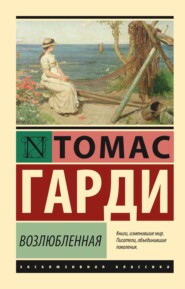По всем вопросам обращайтесь на: info@litportal.ru
(©) 2003-2025.
✖
The Woodlanders
Настройки чтения
Размер шрифта
Высота строк
Поля
All the evening Melbury had been coming to his door, saying, "I wonder where in the world that girl is! Never in all my born days did I know her bide out like this! She surely said she was going into the garden to get some parsley."
Melbury searched the garden, the parsley-bed, and the orchard, but could find no trace of her, and then he made inquiries at the cottages of such of his workmen as had not gone to bed, avoiding Tangs's because he knew the young people were to rise early to leave. In these inquiries one of the men's wives somewhat incautiously let out the fact that she had heard a scream in the wood, though from which direction she could not say.
This set Melbury's fears on end. He told the men to light lanterns, and headed by himself they started, Creedle following at the last moment with quite a burden of grapnels and ropes, which he could not be persuaded to leave behind, and the company being joined by the hollow-turner and the man who kept the cider-house as they went along.
They explored the precincts of the village, and in a short time lighted upon the man-trap. Its discovery simply added an item of fact without helping their conjectures; but Melbury's indefinite alarm was greatly increased when, holding a candle to the ground, he saw in the teeth of the instrument some frayings from Grace's clothing. No intelligence of any kind was gained till they met a woodman of Delborough, who said that he had seen a lady answering to the description her father gave of Grace, walking through the wood on a gentleman's arm in the direction of Sherton.
"Was he clutching her tight?" said Melbury.
"Well – rather," said the man.
"Did she walk lame?"
"Well, 'tis true her head hung over towards him a bit."
Creedle groaned tragically.
Melbury, not suspecting the presence of Fitzpiers, coupled this account with the man-trap and the scream; he could not understand what it all meant; but the sinister event of the trap made him follow on. Accordingly, they bore away towards the town, shouting as they went, and in due course emerged upon the highway.
Nearing Sherton-Abbas, the previous information was confirmed by other strollers, though the gentleman's supporting arm had disappeared from these later accounts. At last they were so near Sherton that Melbury informed his faithful followers that he did not wish to drag them farther at so late an hour, since he could go on alone and inquire if the woman who had been seen were really Grace. But they would not leave him alone in his anxiety, and trudged onward till the lamplight from the town began to illuminate their fronts. At the entrance to the High Street they got fresh scent of the pursued, but coupled with the new condition that the lady in the costume described had been going up the street alone.
"Faith! – I believe she's mesmerized, or walking in her sleep," said Melbury.
However, the identity of this woman with Grace was by no means certain; but they plodded along the street. Percombe, the hair-dresser, who had despoiled Marty of her tresses, was standing at his door, and they duly put inquiries to him.
"Ah – how's Little Hintock folk by now?" he said, before replying. "Never have I been over there since one winter night some three year ago – and then I lost myself finding it. How can ye live in such a one-eyed place? Great Hintock is bad enough – hut Little Hintock – the bats and owls would drive me melancholy-mad! It took two days to raise my sperrits to their true pitch again after that night I went there. Mr. Melbury, sir, as a man's that put by money, why not retire and live here, and see something of the world?"
The responses at last given by him to their queries guided them to the building that offered the best accommodation in Sherton – having been enlarged contemporaneously with the construction of the railway – namely, the Earl of Wessex Hotel.
Leaving the others without, Melbury made prompt inquiry here. His alarm was lessened, though his perplexity was increased, when he received a brief reply that such a lady was in the house.
"Do you know if it is my daughter?" asked Melbury.
The waiter did not.
"Do you know the lady's name?"
Of this, too, the household was ignorant, the hotel having been taken by brand-new people from a distance. They knew the gentleman very well by sight, and had not thought it necessary to ask him to enter his name.
"Oh, the gentleman appears again now," said Melbury to himself. "Well, I want to see the lady," he declared.
A message was taken up, and after some delay the shape of Grace appeared descending round the bend of the stair-case, looking as if she lived there, but in other respects rather guilty and frightened.
"Why – what the name – " began her father. "I thought you went out to get parsley!"
"Oh, yes – I did – but it is all right," said Grace, in a flurried whisper. "I am not alone here. I am here with Edgar. It is entirely owing to an accident, father."
"Edgar! An accident! How does he come here? I thought he was two hundred mile off."
"Yes, so he is – I mean he has got a beautiful practice two hundred miles off; he has bought it with his own money, some that came to him. But he travelled here, and I was nearly caught in a man-trap, and that's how it is I am here. We were just thinking of sending a messenger to let you know."
Melbury did not seem to be particularly enlightened by this explanation.
"You were caught in a man-trap?"
"Yes; my dress was. That's how it arose. Edgar is up-stairs in his own sitting-room," she went on. "He would not mind seeing you, I am sure."
"Oh, faith, I don't want to see him! I have seen him too often a'ready. I'll see him another time, perhaps, if 'tis to oblige 'ee."
"He came to see me; he wanted to consult me about this large partnership I speak of, as it is very promising."
"Oh, I am glad to hear it," said Melbury, dryly.
A pause ensued, during which the inquiring faces and whity-brown clothes of Melbury's companions appeared in the door-way.
"Then bain't you coming home with us?" he asked.
"I – I think not," said Grace, blushing.
"H'm – very well – you are your own mistress," he returned, in tones which seemed to assert otherwise. "Good-night;" and Melbury retreated towards the door.
"Don't be angry, father," she said, following him a few steps. "I have done it for the best."
"I am not angry, though it is true I have been a little misled in this. However, good-night. I must get home along."
He left the hotel, not without relief, for to be under the eyes of strangers while he conversed with his lost child had embarrassed him much. His search-party, too, had looked awkward there, having rushed to the task of investigation – some in their shirt sleeves, others in their leather aprons, and all much stained – just as they had come from their work of barking, and not in their Sherton marketing attire; while Creedle, with his ropes and grapnels and air of impending tragedy, had added melancholy to gawkiness.
"Now, neighbors," said Melbury, on joining them, "as it is getting late, we'll leg it home again as fast as we can. I ought to tell you that there has been some mistake – some arrangement entered into between Mr. and Mrs. Fitzpiers which I didn't quite understand – an important practice in the Midland counties has come to him, which made it necessary for her to join him to-night – so she says. That's all it was – and I'm sorry I dragged you out."
"Well," said the hollow-turner, "here be we six mile from home, and night-time, and not a hoss or four-footed creeping thing to our name. I say, we'll have a mossel and a drop o' summat to strengthen our nerves afore we vamp all the way back again? My throat's as dry as a kex. What d'ye say so's?"
They all concurred in the need for this course, and proceeded to the antique and lampless back street, in which the red curtain of the Three Tuns was the only radiant object. As soon as they had stumbled down into the room Melbury ordered them to be served, when they made themselves comfortable by the long table, and stretched out their legs upon the herring-boned sand of the floor. Melbury himself, restless as usual, walked to the door while he waited for them, and looked up and down the street.
"I'd gie her a good shaking if she were my maid; pretending to go out in the garden, and leading folk a twelve-mile traipse that have got to get up at five o'clock to morrow," said a bark-ripper; who, not working regularly for Melbury, could afford to indulge in strong opinions.
"I don't speak so warm as that," said the hollow-turner, "but if 'tis right for couples to make a country talk about their separating, and excite the neighbors, and then make fools of 'em like this, why, I haven't stood upon one leg for five-and-twenty year."
All his listeners knew that when he alluded to his foot-lathe in these enigmatic terms, the speaker meant to be impressive; and Creedle chimed in with, "Ah, young women do wax wanton in these days! Why couldn't she ha' bode with her father, and been faithful?" Poor Creedle was thinking of his old employer.
"But this deceiving of folks is nothing unusual in matrimony," said Farmer Bawtree. "I knowed a man and wife – faith, I don't mind owning, as there's no strangers here, that the pair were my own relations – they'd be at it that hot one hour that you'd hear the poker and the tongs and the bellows and the warming-pan flee across the house with the movements of their vengeance; and the next hour you'd hear 'em singing 'The Spotted Cow' together as peaceable as two holy twins; yes – and very good voices they had, and would strike in like professional ballet-singers to one another's support in the high notes."
"And I knowed a woman, and the husband o' her went away for four-and-twenty year," said the bark-ripper. "And one night he came home when she was sitting by the fire, and thereupon he sat down himself on the other side of the chimney-corner. 'Well,' says she, 'have ye got any news?' 'Don't know as I have,' says he; 'have you?' 'No,' says she, 'except that my daughter by my second husband was married last month, which was a year after I was made a widow by him.' 'Oh! Anything else?' he says. 'No,' says she. And there they sat, one on each side of that chimney-corner, and were found by their neighbors sound asleep in their chairs, not having known what to talk about at all."
"Well, I don't care who the man is," said Creedle, "they required a good deal to talk about, and that's true. It won't be the same with these."
"No. He is such a projick, you see. And she is a wonderful scholar too!"
"What women do know nowadays!" observed the hollow-turner. "You can't deceive 'em as you could in my time."

















